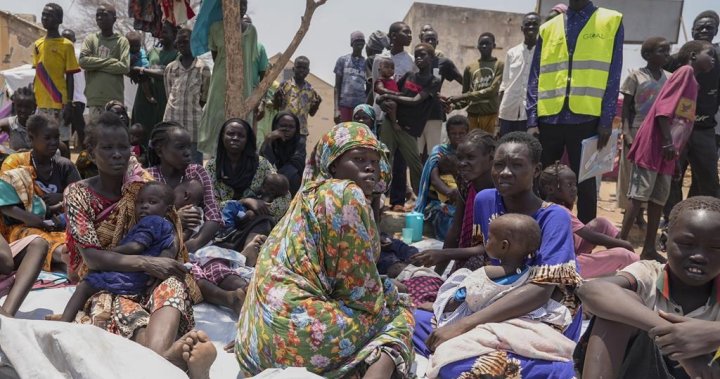Canada
More Sudan war refugees to be resettled in Canada as Liberals up quota

Canada’s Response to the Sudanese Refugee Crisis: A Comprehensive Overview
The ongoing civil war in Sudan has precipitated a severe humanitarian crisis, prompting an urgent international response. Canada has stepped up its efforts to provide sanctuary to those displaced by the conflict. The federal government has announced an increase in the number of refugees it plans to resettle, with a particular focus on those affected by the violence in Sudan. This commitment reflects Canada’s longstanding tradition of offering safety to individuals fleeing conflict and persecution, and it underscores the nation’s role as a global leader in humanitarian efforts. By expanding its resettlement programs, Canada aims to provide hope and a new beginning for thousands of Sudanese refugees.
The Expansion of Refugee Resettlement Programs
The federal government has outlined several initiatives to increase the number of refugees it will resettle. One key component of this plan is the expansion of the government-assisted refugee program. Initially, the program had a target of 3,250 refugees, but this number has been increased to over 5,000. This change is expected to result in approximately 10,000 Sudanese refugees reaching Canada. Additionally, the government has committed to resettling 4,000 Sudanese individuals living in dangerous conditions abroad by the end of 2026. Privately sponsored programs will also play a crucial role, with 700 spots allocated for Sudanese refugees sponsored by Canadian citizens and organizations. These measures demonstrate Canada’s commitment to addressing the global refugee crisis and offering a safe haven to those in desperate need.
Challenges in Family Reunification: The Case of Quebec
Despite the federal government’s efforts to increase refugee resettlement, challenges remain in family reunification, particularly in the province of Quebec. The federal government has maintained that Quebecers cannot sponsor their Sudanese relatives to settle within the province. Instead, Quebecers who wish to sponsor their relatives must do so with the understanding that their family members will be resettled in another province. This policy has raised questions about the province’s approach to immigration and refugee resettlement. While the federal government has indicated flexibility in allowing Quebecers to sponsor relatives for resettlement elsewhere in Canada, the inability to sponsor within Quebec has sparked debate. The office of Quebec Immigration Minister Jean-François Roberge has not provided immediate comment on the matter, leaving many to wonder about the reasoning behind the province’s stance.
The Devastating Impact of Sudan’s Civil War
The conflict in Sudan has created one of the most severe humanitarian crises in recent history. Violence erupted in April 2023 when competing government troops clashed, leading to widespread displacement and suffering. The United Nations has described the situation as the world’s largest displacement crisis, while the United States has labeled the violence in the Darfur region as a genocide. The scale of the crisis is staggering, with millions of Sudanese civilians caught in the crossfire of the conflict. Many have been forced to flee their homes, seeking safety in neighboring countries or beyond. The situation remains dire, with reports of human rights abuses, limited access to basic necessities, and a growing humanitarian needs.
Criticisms and Calls for Improvement
While the federal government’s efforts to resettle Sudanese refugees have been welcomed by many, the program has not been without criticism. Diaspora groups, including the Sudanese Canadian Community Association, have raised concerns about the implementation of the family reunification program. In an open letter, these groups highlighted several issues, including a slow rollout of the program, inadequate financial support compared to other refugee initiatives, and processing delays that have had tragic consequences. Some have pointed out that the delays in processing applications have resulted in the deaths of individuals awaiting resettlement. While Immigration Minister Marc Miller has acknowledged these concerns and stated that the program was developed in consultation with diaspora groups, critics argue that more must be done to address the barriers faced by Sudanese refugees.
Looking Ahead: The Road to Recovery and Rebuilding
As Canada continues to expand its refugee resettlement efforts, the focus must now shift to ensuring that these programs are implemented effectively and equitably. This requires addressing the challenges highlighted by diaspora groups and working to eliminate the barriers that prevent Sudanese refugees from rebuilding their lives in Canada. The federal government’s willingness to adjust the program in response to feedback is a positive step, but ongoing advocacy and collaboration will be essential to achieving long-term success. As the situation in Sudan continues to unfold, the international community must remain vigilant and prepared to respond to the evolving needs of those affected by the conflict. By working together, Canada and other nations can help to alleviate the suffering of Sudanese refugees and provide them with the hope of a brighter future.











